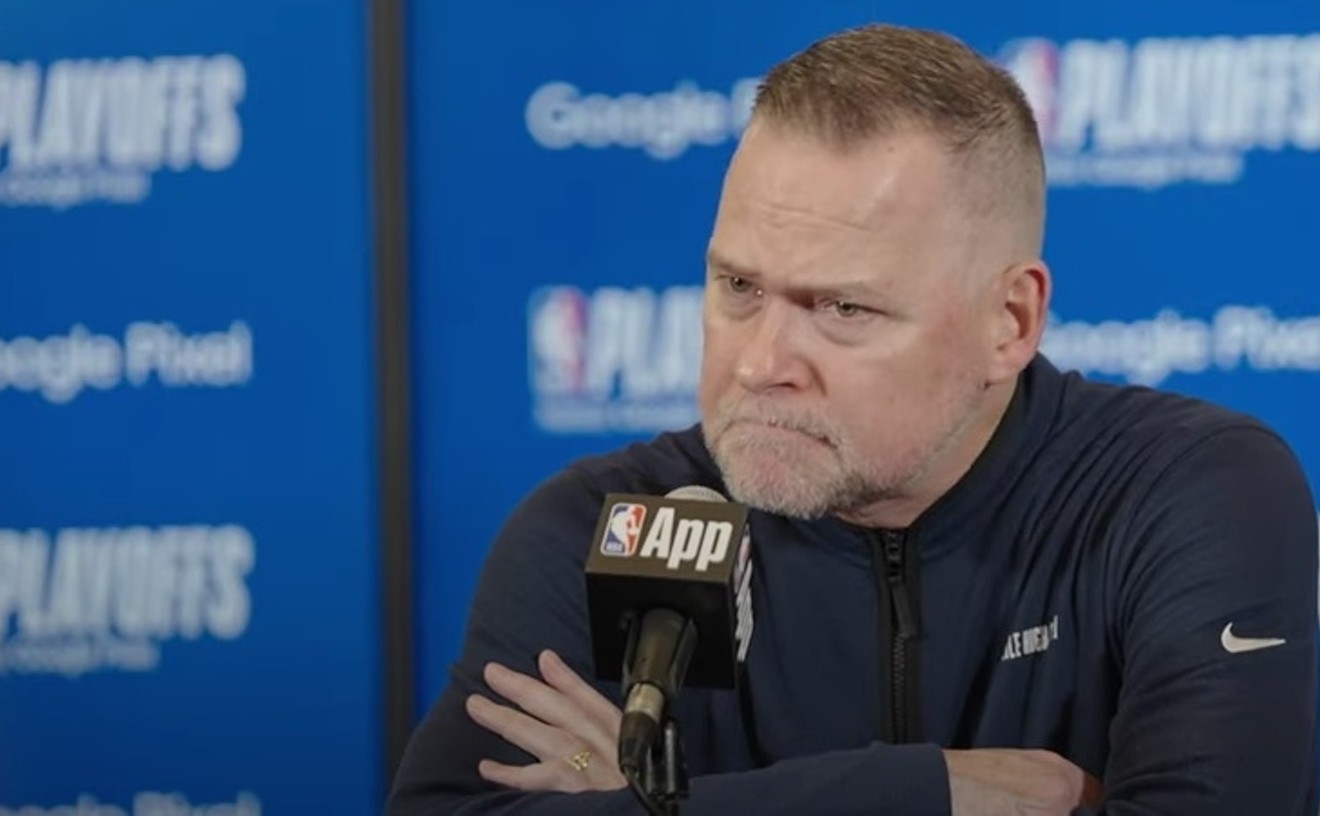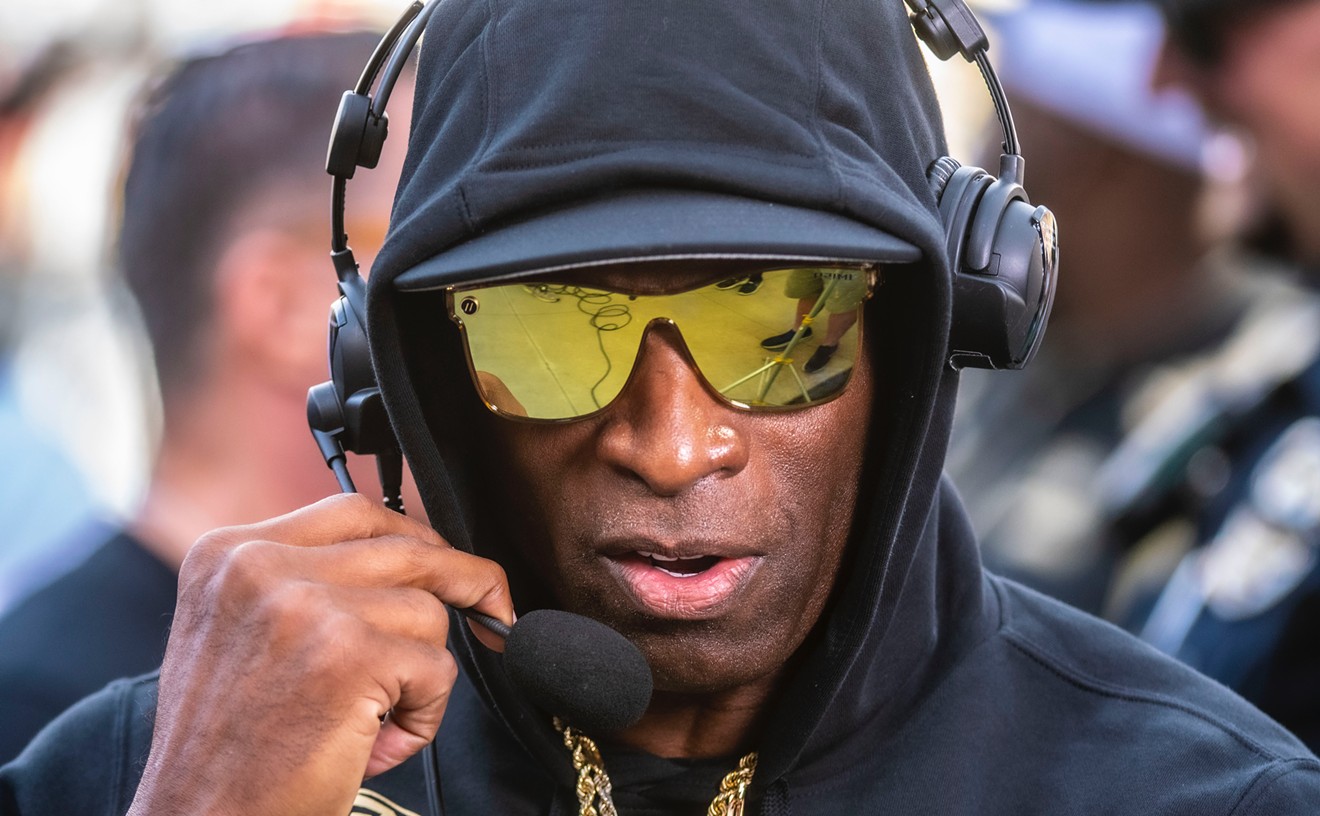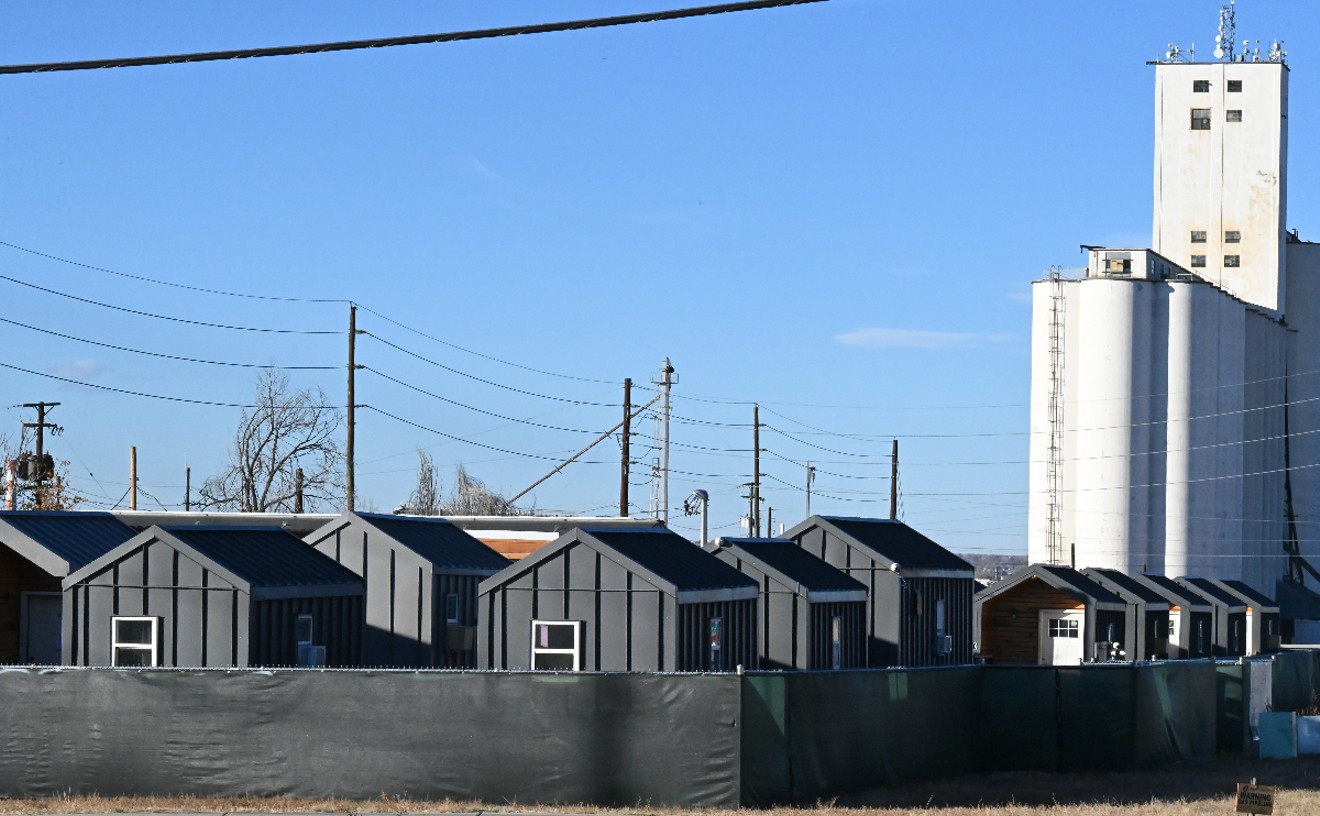NARAL Pro-Choice Colorado's annual gala took place on Saturday evening at the Grand Hyatt, and attendees included representatives Diana DeGette and Ed Perlmutter, as well as Senator Michael Bennet, whose 2010 election has become something of a NARAL template for major elections.
Hogue says taking part in the event was a "no brainer" not only because she wanted to show support for Colorado NARAL executive director Karen Middleton and her staff, but due to her view that "Colorado is such a critically important state for everything that goes down nationally. The rest of the nation looks to you guys to make the difference in presidential elections, but Colorado is also an innovative incubator of ideas."I've only been in my position for seven months, but I've been involved in progressive politics for a long time," she notes. "And it's my fondest hope that what comes from Colorado spreads across the country and ultimately impacts what's happening in Washington, D.C."
Of course, a recent Colorado political development with potentially far-reaching repercussions -- the recall of Pueblo Representative Angela Giron and Colorado Springs Senator John Morse -- didn't go the way Hogue had hoped. Even though the recall was motivated by gun legislation, not women's health matters, Colorado NARAL expended a considerable amount of effort, and some national resources, in support of Giron, attempting to paint her opponents as anti-choice -- but to no avail.
Even so, Hogue doesn't see a definitive link between these two issues.
"I'm a Texan by birth, so I'm very familiar with being in a pro-gun state," she points out. "And the sort of bedrock structure of choice -- to keep politicians out of the decisions of women and families -- is also part of the gun debate. So it was a loss, no doubt about it -- but it was also a bit of an anomaly, since it was a special election, and because of the short timeline, the opponents were never fully vetted in the public eye.
"If we'd had more time to get out the really out-of-step views of the opponents about reproductive choice and their support of personhood, we could have helped blunt some of the impact of the pro-gun lobby. So I don't see the recall as a bellwether for choice. Colorado remains one of our strongest pro-choice states in the country."
Continue for more of our interview with NARAL Pro-Choice American President Ilyse Hogue, including additional photos. As evidence of this last statement, Hogue mentions two pieces of legislation that NARAL supported during Colorado's most recent legislative session: a K-12 sex education proposal and the Crimes Against Pregnant Women Act, both of which passed and have been signed into law.About the former, she says, "I am pleased that Colorado is at the forefront of recognizing that the essence of choice is accurate information for young people. Knowledge is power, and young people need comprehensive sex education that alerts them from an age of experimentation about their options vis-a-via safe sex and reproductive choice. And Colorado is really working on making sure they get that information."
She adds that the Crimes Against Pregnant Women Act demonstrates NARAL's belief that "choice is not just about access to abortion. It's also about the choice to have families."
The news hasn't been nearly as positive from NARAL's perspective in other parts of the country. Hogue mentions new and exceedingly restrictive abortion legislation in Texas that was delayed but not killed via a filibuster by state senator Wendy Davis, as well as similar bills that were pushed through in North Carolina and Ohio.
"It's no secret that this legislative cycle has been defined by attacks on reproductive freedom in too many states around the country," Hogue allows. "We've seen what are basically abortion bans and the kind of invasive, forced-ultrasound laws that are harmful to women and really motivated the populace to tell politicians to stay out of our personal decisions."
As she sees it, "this really has been an interesting trend, because governors and state legislatures seem to know they don't have public opinion on their side. We saw them breaking rules and cheating the process in order to drag these bills through -- bills that are being driven by a really extreme and out-of-touch political base. When North Carolina's governor [Pat McCrory] signed the bill there, his favorability dropped twenty points, and 80 percent of voters didn't like how it happened regardless of where they stood on abortion. So it's become a kind of catch-22 for these officials. Whether they're ideologically driven or they're doing the bidding of an extreme minority base, they're suffering."
If this continues, the repercussions will be considerable, since "2014 is going to be a huge year," Hogue says. "There are 36 governor's races around the country, and women's rights and women's health hang in the balance. We're all invested in how these races go, and that's definitely true in Colorado," where "we have a pro-choice governor we want to keep in office and a state senate that is at risk. That's why we need to work hand-in-glove with our state partners to make sure we're not only preventing further rollbacks, but we're actually safeguarding the forward-looking states and legislatures, like the ones in Colorado, to move policy forward that actually protects women and is better suited for American families."
Continue for more of our interview with NARAL Pro-Choice American President Ilyse Hogue, including additional photos. The Virginia governor's race between abortion opponent Ken Cuccinelli and pro-choice hopeful Terry McAuliffe, which will come to a head in November 2013, a year before most of the other contests, is something of a test case, Hogue believes. Moreover, the strategy NARAL is employing there is the same one that helped elect Senator Bennet in Colorado -- highlighting the anti-abortion positions of an opponent (in Bennet's case, Ken Buck) whether or not they make them central to their campaign."Senator Bennet and politicians like him recognize that when the extreme positions of opponents are exposed and candidates are forced to speak to them and defend them in the public square, they lose," Hogue maintains. "You hear politicians say, 'I don't want to talk about this. It's a social issue, and people only want to hear about jobs and the economy.' But that's fundamentally untrue. Women's economic livelihood is tied up with their ability to take charge of their family planning. That's the real way Americans understand reproductive health and reproductive choice, and the extremists are very out of step with the common family experience in this country. We applaud Michael Bennet for his willingness to expose the extreme agenda of his opponent, and we think it's a winning strategy we'd like to see replicated around the country.
"In Virginia, we're seeing indications that voters who are otherwise on the fence or identify themselves as independents are being driven to not only go to the polls but vote for the pro-choice candidate when they see the extreme positions of the opponents on choice -- and Senator Bennet's campaign provided great modeling on that," she continues. "The protection of women to make personal decisions with their families and their doctors has not traditionally been a partisan issue. In Colorado, the laws were passed under a Republican governor [John Love, who signed a bill allowing abortion in the state circa 1967]. So, in these hyper-partisan times, we're looking for states like Colorado to exemplify the fact that this is a family issue, not a Democratic or Republican issue, and that we expect our leaders to act accordingly."
Positions on such subjects tend to be predictive when it comes to related topics, too, Hogue stresses. "When you look at a candidate's record, time and time again, you see that people who vote to restrict reproductive choice are the same people who vote against families across the board -- vote against things like the Violence Against Women Act and the Equal Pay Act. And that's replicated not just at the presidential level, but all the way down to the city council level.
"That's why it's important for folks in Colorado to look beyond a candidate's record and statements to their willingness to safeguard the kinds of economic measures that are family friendly. The majority of the country now has working mothers, and they need a forward-looking pro-choice agenda. We're supporting that nationally, and we're also supporting it here in Colorado."
More from our News archive circa November 2010: "Michael Bennet victory announcement photo gallery."











